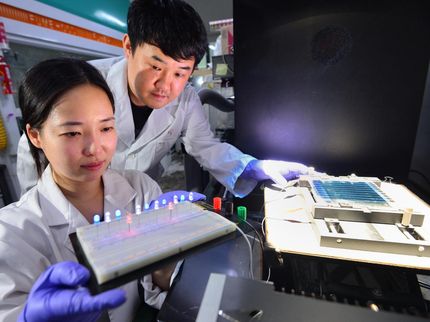Dow Corning kicks-off research activities in new €9m European development center
Dow Corning announced it has started research activities in the newly completed state-of-the-art Solar Energy Exploration and Development (SEED) research center, which focuses on the development and discovery of new materials and technologies that will help advance renewable energy and energy efficiency.
Part of a global network of research and development facilities, the SEED supplements Dow Corning’s existing European science capacities in Belgium, the UK and Germany. The company’s research aims to develop the innovations that will help address today’s major societal issues such as helping make renewable energy a viable and sustainable option, and meeting the challenges of rapid urbanization.
“Our journey toward the future will be guided by chemists, scientists and engineers creating new approaches to innovation and developing novel products that enrich people’s lives and benefit the environment,” said Dr. Gregg Zank, Dow Corning’s senior vice president and chief technology officer. “The silicon technologies we develop alongside our customers at this facility, and throughout our network, will continue to be a driver for growth and sustainable development not only in Europe, but all over the world.”
The SEED includes a Solar Application Center and a Silicon Technology Center. The center’s solar cell laboratory is Dow Corning’s first of its kind, and completes the company’s network of solar research centers based in the United States and Korea.
“Dow Corning’s European Solar Application Center complements our global innovation capabilities and enhances our ability to collaborate with customers and research institutes around Europe,” said Eric Peeters, Dow Corning’s vice president for Solar Solutions. “Our research continues to focus on reducing the cost of solar energy to make photovoltaics even more competitive with traditional energy sources.”
The Solar Application Center enables the company’s engineers and scientists to work with customers to develop and evaluate materials solutions used to make solar cells.
Other news from the department science

Get the chemical industry in your inbox
By submitting this form you agree that LUMITOS AG will send you the newsletter(s) selected above by email. Your data will not be passed on to third parties. Your data will be stored and processed in accordance with our data protection regulations. LUMITOS may contact you by email for the purpose of advertising or market and opinion surveys. You can revoke your consent at any time without giving reasons to LUMITOS AG, Ernst-Augustin-Str. 2, 12489 Berlin, Germany or by e-mail at revoke@lumitos.com with effect for the future. In addition, each email contains a link to unsubscribe from the corresponding newsletter.



























































